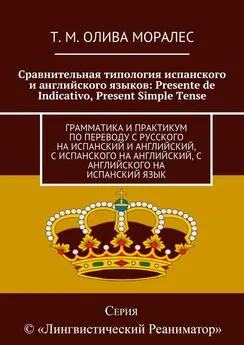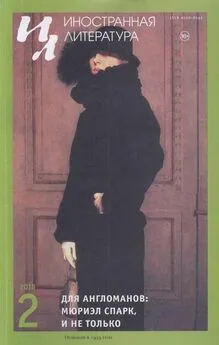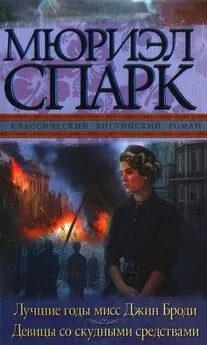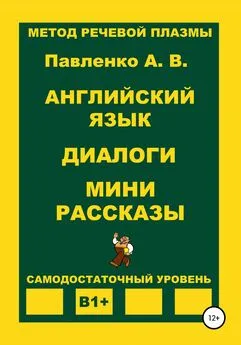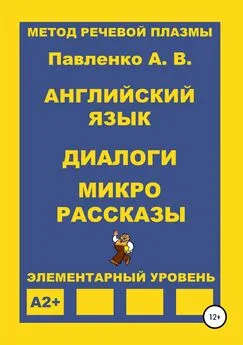Мюриэль Спарк - Английский язык с Мюриэль Спарк (рассказы)
- Название:Английский язык с Мюриэль Спарк (рассказы)
- Автор:
- Жанр:
- Издательство:неизвестно
- Год:неизвестен
- ISBN:нет данных
- Рейтинг:
- Избранное:Добавить в избранное
-
Отзывы:
-
Ваша оценка:
Мюриэль Спарк - Английский язык с Мюриэль Спарк (рассказы) краткое содержание
Английский язык с Мюриэль Спарк (рассказы) - читать онлайн бесплатно полную версию (весь текст целиком)
Интервал:
Закладка:
"I'm glad you like Henry and Oxford (я рад, что тебе понравились Генри и Оксфорд)," he said. "I'm glad we’re able to introduce them (что мы сможем представить их) to so many people (такому большому количеству людей)." For the dark pair had (и пара темнокожих: «темная пара»), within a month (в течение месяца), spent nine evenings at Cripps House (провела девять вечеров в Криппс Хауз); they had met accountants (они встретились с бухгалтерами), teachers (учителями), packers (упаковщиками), and sorters (и сортировщиками). Only Tina Farrell (только Тина Фаррелл), the usherette (билетерша), had not seemed to understand (казалось, не понимала) the quality of these occasions (ценность этих встреч; quality — качество ): "Quite nice chaps (довольно приятные парни), them darkies (эти черные; darky — негр, черномазый ), when you get to know them (когда познакомишься с ними поближе)."
talkative ['tO: kqtIv] acquaintance [q'kweIntqns] occasion [q'keIZ(q)n]
A dozen Jamaicans were taken on at the motor works. Two came into Raymond's department. He invited them to the flat one evening to have coffee. They were unmarried, very polite and black. The quiet one was called Henry Pierce and the talkative one, Oxford St. John. Lou, to Raymond's surprise and pleasure, decided that all their acquaintance, from top to bottom, must meet Henry and Oxford. All along he had known she was not a snob, only sensible, but he had rather feared she would consider the mixing of their new black and their old white friends not sensible.
"I'm glad you like Henry and Oxford," he said. "I'm glad we're able to introduce them to so many people." For the dark pair had, within a month, spent nine evenings at Cnpps House; they had met accountants, teachers, packers, and sorters. Only Tina Farrell, the usherette, had not seemed to understand the quality of these occasions: "Quite nice chaps, them darkies, when you get to know them."
"You mean Jamaicans (ты имеешь в виду жители Ямайки)," said Lou. "Why shouldn’t they be nice (почему им не быть: «они не должны быть» милыми)? They're no different from anyone else (они ничем не отличаются от любого другого)."
"Yes, yes, that's what I mean (да, да, это как раз то, что я имею в виду)," said Tina.
"We're all equal (мы все равны)," stated Lou (заявила Лу; tostate— излагать, констатировать ). "Don't forget there are black Bishops (не забывай, что есть и чернокожие епископы)."
"Jesus (Иисус), I never said we were the equal of a Bishop (я никогда не говорила, что мы ровня епископу)," Tina said, very bewildered (сказала Тина, совершенно сбитая с толку; bewildered— смущенный, озадаченный ).
"Well, don't call them darkies (ну, не называй их черными)."
Sometimes (иногда), on summer Sunday afternoons (летними воскресными днями) Raymond and Lou took their friends for a run in their car (Раймонд и Лу брали своих друзей на автомобильную прогулку: «прогулку в автомобиле»), ending up at a riverside road-house (которая заканчивалась в придорожной гостинице на берегу реки; riverside— прибрежная полоса, берег реки ). The first time they turned up with Oxford and Henry (в первое время, когда они появлялись /в компании/ с Оксфордом и Генри; toturnup— внезапно появиться, приехать ) they felt defiant (они чувствовали себя бунтарями; defiant— вызывающий, открыто не повинующийся ); but there were no objections (но они не встречали: «там не было» возражений), there was no trouble at all (это оказалось совершенно не скандально: «было без проблем»). Soon the dark pair ceased to be a novelty (вскоре темнокожая пара перестала быть новизной). Oxford St. John took up with a pretty red-haired book-keeper (Оксфорд Сент-Джон закрутил роман: «встречался» с хорошенькой рыжеволосой бухгалтершей), and Henry Pierce (и Генри Пирс), missing his companion (ощущая отсутствие своего товарища; tomiss— промахнуться, упустить, скучать ), spent more of his time at the Parkers' flat (проводил больше времени в квартире Паркеров). Lou and Raymond had planned (Лу и Раймонд запланировали) to spend their two weeks' summer holiday (провести свой двухнедельный летний отпуск) in London. "Poor Henry (бедный Генри)," said Lou. "He'll miss us (он будет скучать /без нас/)."
Jesus ['Gi: zqs] bewildered [bI'wIldqd] defiant [dI'faIqnt] novelty ['nOv(q)ltI]
"You mean Jamaicans," said Lou. "Why shouldn't they be nice? They're no different from anyone else."
"Yes, yes, that's what I mean," said Tina
"We're all equal," stated Lou. "Don't forget there are black Bishops."
"Jesus, I never said we were the equal of a Bishop," Tina said, very bewildered.
"Well, don't call them darkies."
Sometimes, on summer Sunday afternoons Raymond and Lou took their friends for a run in their car, ending up at a riverside road-house. The first time they turned up with Oxford and Henry they felt defiant; but there were no objections, there was no trouble at all. Soon the dark pair ceased to be a novelty. Oxford St. John took up with a pretty red-haired book-keeper, and Henry Pierce, missing his companion, spent more of his time at the Parkers' flat. Lou and Raymond had planned to spend their two weeks' summer holiday in London. "Poor Henry," said Lou. "He'll miss us."
Once you brought him out (когда удавалось его разговорить: «когда ты заставлял его высказаться») he was not so quiet (он не был таким тихоней; quiet — тихий, спокойный ) as you thought at first (каким он казался: «ты думал /о нем/» сперва). Henry was twenty-four (Генри было двадцать четыре года), desirous of knowledge in all fields (жаждущий знаний во всех областях; field — поле, областьзнаний ), shining very much (сияющий «очень сильно») in eyes (глазами), skin (кожей), teeth (зубами), which made him seem all the more eager (/сияние/ которых делало его, казалось, еще более жаждущим; eager — страстностремящийся, жаждущий, энергичный ). He called out the maternal in Lou (он взывал к материнским чувствам в Лу; maternal — материнский, свойственныйматери ), and to some extent the avuncular in Raymond (и, до некоторой степени, нечто отеческое в Раймонде; extent — степень, мера, объем; avuncular — свойственныйдобромудядюшке ). Lou used to love him (она привыкла находить удовольствие: «любить его») when he read out lines from his favourite poems (когда он читал вслух строчки из его любимых стихов; favourite — излюбленный, пользующийсяуспехом ) which he had copied into an exercise book (которые он переписывал: «копировал» в рабочую тетрадь).
Haste thee(поспеши; to hasten — спешить, торопиться), nymph(нимфа), and bring with thee(ипринесиссобой; thee — уст. поэт. тобой, тебе, тебя)
Jest and youthful jollity(шуткиивесельемолодости),
Sportthat(резвись;tosport— щеголять, резвиться, высмеивать)…
desirous [dI'zaI(q)rqs] eager ['i: gq] avuncular [q'vANkqlq]
Once you brought him out he was not so quiet as you thought at first. Henry was twenty-four, desirous of knowledge in all fields, shining very much in eyes, skin, teeth, which made him seem all the more eager. He called out the maternal in Lou, and to some extent the avuncular in Raymond. Lou used to love him when he read out lines from hisfavouritepoems, which he had copied into an exercise book.
Haste thee, nymph, and bring with thee Jest and youthful jollity,
Sport that…
Lou would interrupt (Лу обычно: «бывало» перебивала /его/): "You should say jest, jollity (ты должен произносить шутка (jest), веселье (jollity), — not vest, yollity (а не «футка», «феселье»)."
"Jest," he said carefully (он выговаривал тщательно). "And laughter holding both his sides (и смеха хватался за бока; side— стенка, край, бок;toholdone'ssideswithlaughter— покатываться со смеху, хохотать до упаду )," he continued (он продолжал). ''Laughter(смех)— hear that, Lou (ты слышишь, Лу)? — laughter(смех). That's what the human race was made for (вот для чего человеческая раса была создана: «сделана»). Those folks that go round gloomy, Lou, they (те люди, что ходят угрюмые, Лу, они; folks— люди, народ, родственники )…"
Lou loved this talk (Лу нравились эти разговоры). Raymond puffed his pipe benignly (Раймонд попыхивал своей трубкой благожелательно; topuff— дуть порывами; пускать клубы дыма ). After Henry had gone (когда Генри уходил) Raymond would say (Раймонд говорил) what a pity it was (какая жалость /это была/; pity— жалость, сострадание; печальный факт ) such an intelligent young fellow (что такой умный молодой человек; intelligent— хорошо соображающий, смышленый ) had lapsed (отошел от церкви; lapsed— впадший в грех, отошедший от церкви ). For Henry had been brought up in Roman Catholic mission (так как Генри воспитывался в католической миссии; to bring up — воспитывать ). He had, however, abandoned religion (он, однако, отказался от религии; to abandon — отказаться, оставлять ). He was fond of saying (ему нравилось повторять: «говорить»; to be fond of — любитького-либо, что-либо ), "The superstition of today (суеверия сегодняшнего дня) is the science of yesterday (это наука вчерашнего дня)."
Читать дальшеИнтервал:
Закладка:



